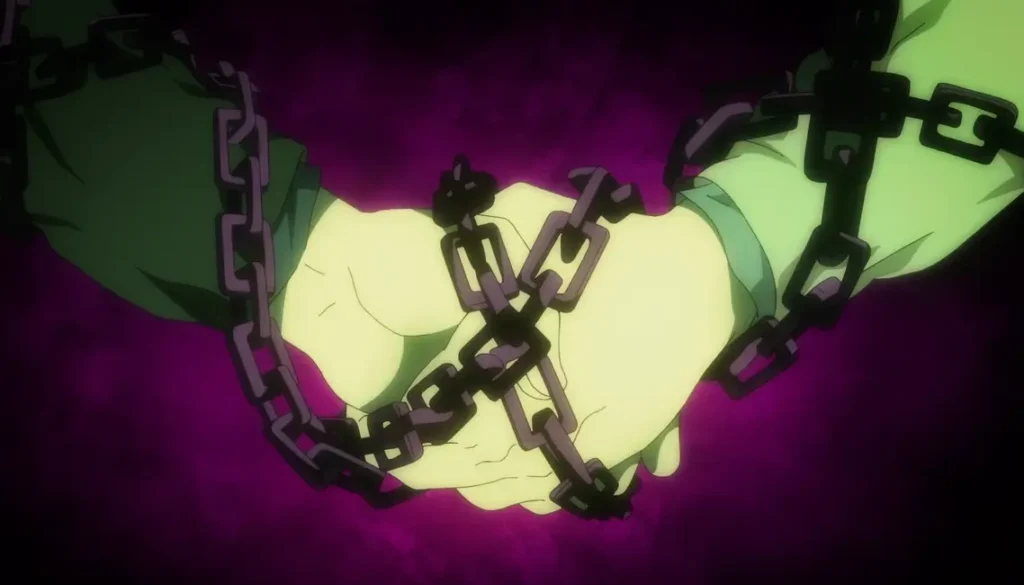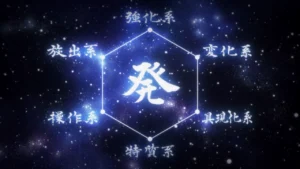Binding Vows are an integral part of Jujutsu Kaisen’s power system. They are responsible for many turnarounds and memorable moments throughout various fights in the series. In this post, you’ll understand how they work, their classification, and see examples. So, let’s begin.
what are Biding Vows in JJK?
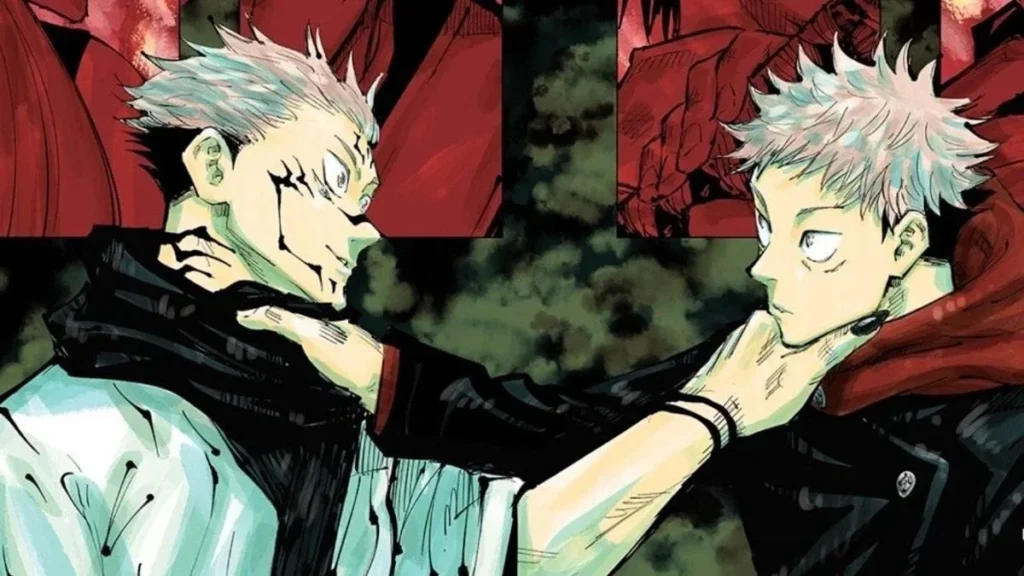
Binding Vows are a key part of jujutsu sorcery. Sorcerers make these agreements either with themselves or others, often involving big risks or sacrifices. The power of a Binding Vow comes from the user’s commitment to the contract’s terms. By sticking to these terms, a sorcerer can boost their cursed energy or improve their techniques. But if they break a Binding Vow, they lose what they gained from the contract.
Types of Binding Vows
Vows with Oneself

These self-imposed restrictions can hurt the creator but also boost their power. For example, a sorcerer might limit their cursed energy use for a while. As a result, this can increase their overall cursed energy. Alternatively, they might set a specific condition, like in Hakari’s Domain Expansion. Additionally, revealing their cursed technique to an opponent creates more risk. However, it also makes the technique stronger.
Vows with Others
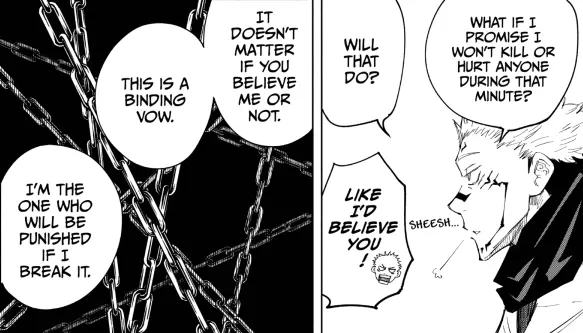
These agreements involve two parties. The conditions and benefits of these vows can vary, often involving mutual gains and big risks. For example, Yuji Itadori and Sukuna’s vow. Sukuna promises to heal Yuji in exchange for taking control of his body for one minute when he says the word “Enchain.”
what happens if someone breaks a biding vow?

It depends on the type of binding vow we’re discussing. For self-imposed binding vows, the consequence is that the person loses whatever benefit they gained from it. Things become more dangerous with vows involving others. While it’s still unknown, we know it’s much worse than just losing the benefit. Kenjaku showed us this when talking to Mahito, who considered breaking a binding vow made with Mechamaru.
Are biding vows fair?
Many fans think binding vows are unfair sometimes. For example, Sukuna’s binding vows in his fight against all the sorcerers in the manga are controversial. One vow stands out: the vow Sukuna used to finish off Satoru Gojo. This vow was used in his World Slash technique. Each time he wants to use it again, he must chant and direct the slash with his hand. Fans argue this isn’t fair and believe Gege Akutami used it as a plot device to end the fight as planned.
There’s no confirmation about what makes a binding vow fair. It’s unclear if it’s a natural phenomenon with cursed energy or if it depends on the sorcerer’s belief that the restriction is fair for its benefit.
All Binding Vows in Jujutsu Kaisen
Revealing your cursed technique

Strengthening the ability’s output
Revealing what it does
This Binding Vow has a sorcerer explain their cursed technique to their opponent. Doing this boosts their technique’s power a lot. But it also makes them more open to counterattacks. It’s also possible to use this vow to trick opponents by sharing just enough to make their technique stronger while keeping some parts secret.
Overtime
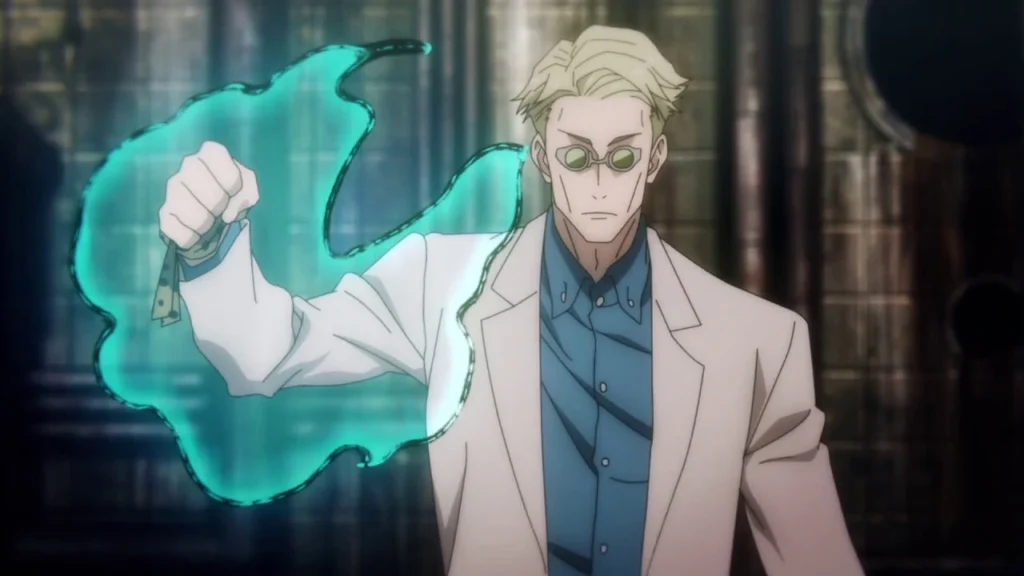
More cursed energy during overtime
Less cursed energy during the rest of the time
Kento Nanami uses a smart Binding Vow to control his cursed energy. During normal work hours, he limits his energy use to 80-90% of his maximum. But when he works overtime, his energy jumps to 110-120% of his max. This big boost in power lets Nanami launch powerful attacks and defeat even special-grade sorcerers.
All of Sukuna’s binding vows
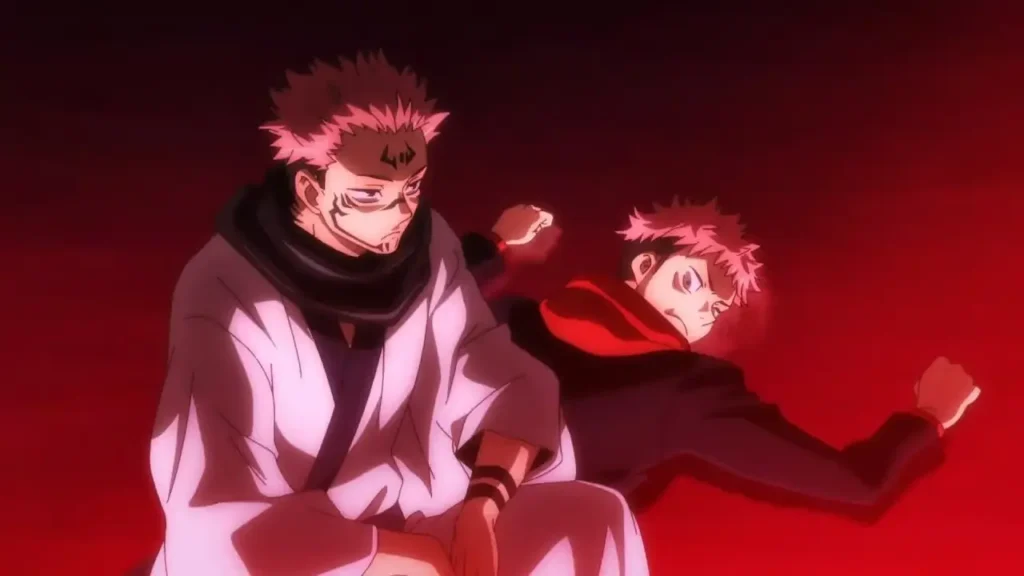
The vow between Yuji Itadori and the powerful cursed spirit Sukuna is one of the earliest and most important Binding Vows in the series. When Yuji is close to death, Sukuna agrees to heal him. However, in return, Sukuna can take control of Yuji’s body for one minute whenever he says “Enchain.” Sukuna also promises not to kill anyone during this minute. This is the first of many Binding Vows we see Sukuna making, so here’s a complete list of the rest:
- As mentioned earlier, Sukuna vowed to use his Dismantle technique without a hand sign in the fight against Gojo to catch him off guard. He promised to require chants and a third hand to direct the slash in all its future uses.
- Sukuna’s Domain Expansion, “Malevolent Shrine,” is also the stage for many of his vows. For instance, one vow allows an escape route on it, but with this limitation, its area can reach an impressive 200 meters with great output.
- In his fight against the High Sorcerers, Sukuna made another vow so that he could expand his domain for a minute and 39 seconds without reducing its size or cursed energy output. To achieve this, he changed his Domain Expansion hand sign and used undamaged brain parts.
- Moreover, Sukuna didn’t stop there. In the same fight, he vowed to only use his Divine Flame against multiple opponents if he was inside his domain. With this, Sukuna could make fine particles explode when ignited by the this cursed technique. This large number of Binding Vows made by him shows their importance in sorcery and how effective they can be in the hands of experienced individuals.
Mahito’s Instant Spirit Body of Distorted Killing
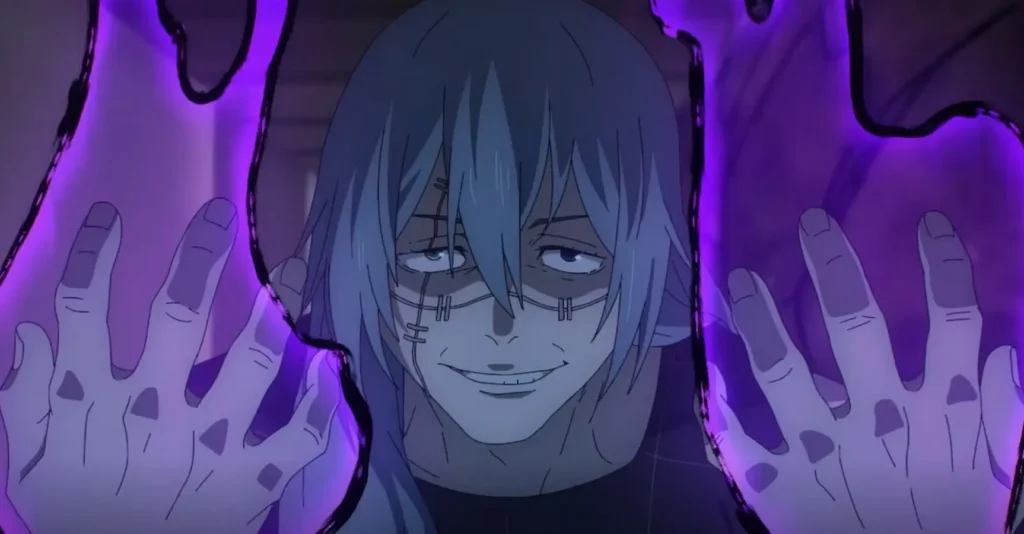
Boosted toughness
Gives up form-changing ability
Mahito, a malevolent cursed spirit, imposes a Binding Vow on himself to boost his toughness. By doing this, he gives up his ability to use Idle Transfiguration to change his form. This self-imposed restriction lets Mahito endure more damage in fights. The vow essentially trades flexibility for greater durability.
Kasumi Miwa’s Simple Domain
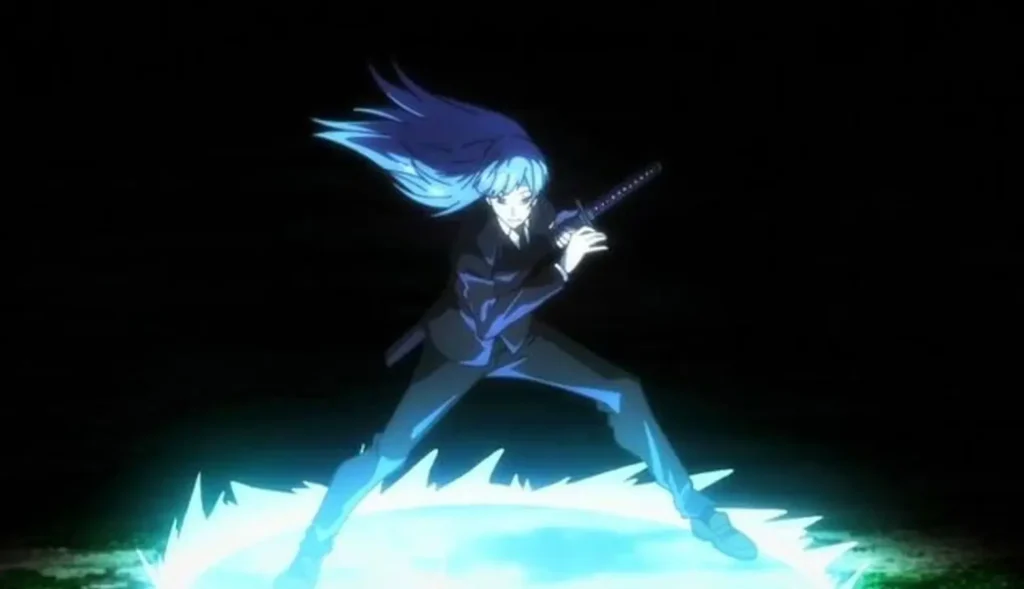
Improved focus and precision
Must stay still to maintain technique
As a beginner sorcerer, Kasumi Miwa can only use her Simple Domain by making a Binding Vow. The condition is that if her feet move from where she activated the technique, the Simple Domain ends. This restriction means Miwa must stay still while using her technique, which makes it harder but also improves her focus and precision.
Heavenly Restrictions
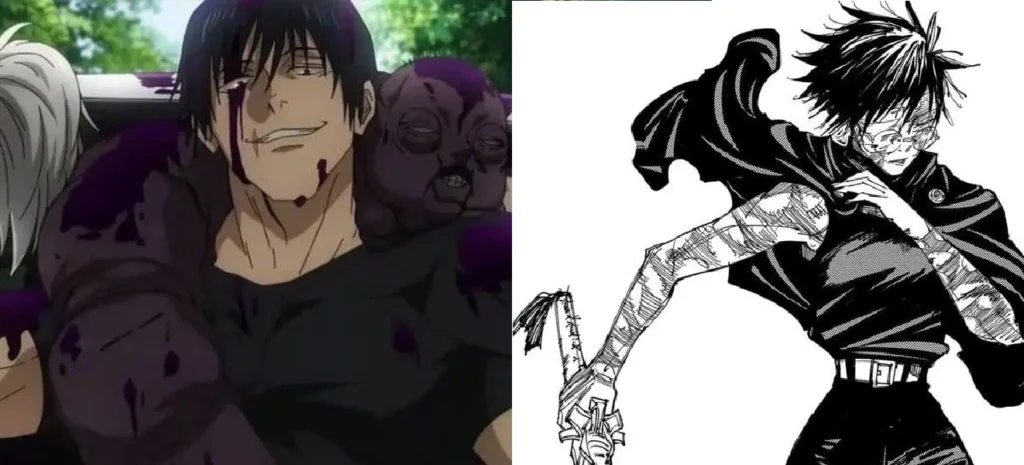
Superhuman physical and sensory abilities
Reduced cursed energy
Characters like Maki Zenin and Toji Fushiguro in have something called Heavenly Restrictions. This special condition reduces their cursed energy but gives them superhuman physical and sensory abilities instead. Because of this, they are extremely powerful in physical combat, making up for their lack of cursed energy.
Yuta and Rika
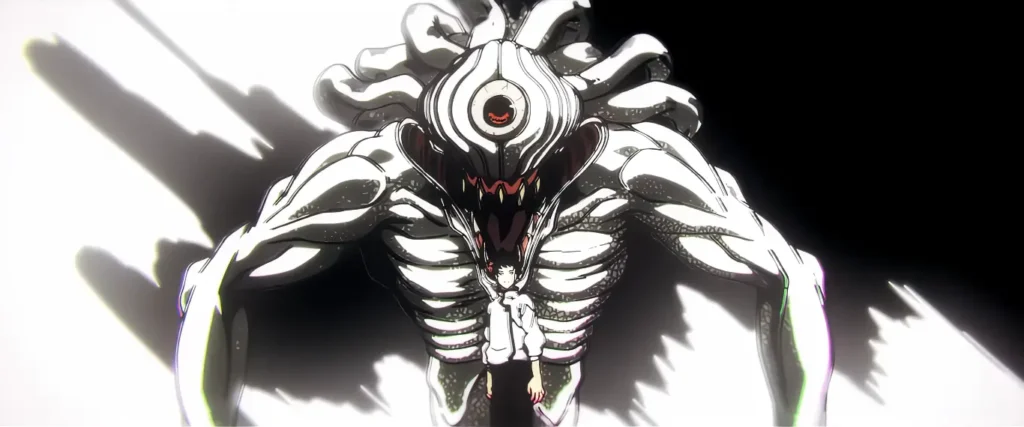
Gained power to defeat Geto
Vow was broken without consequences
At the end of Jujutsu Kaisen 0, Yuta and Rika made a binding vow. Yuta promised his life to Rika so he could join her in the afterlife. In return, Rika would give him the power to beat Geto. The interesting part is that Yuta’s promise didn’t happen. Rika didn’t want Yuta to die, so the vow was broken without any consequences for Yuta.
Hakari’s vow sacreficing his arm
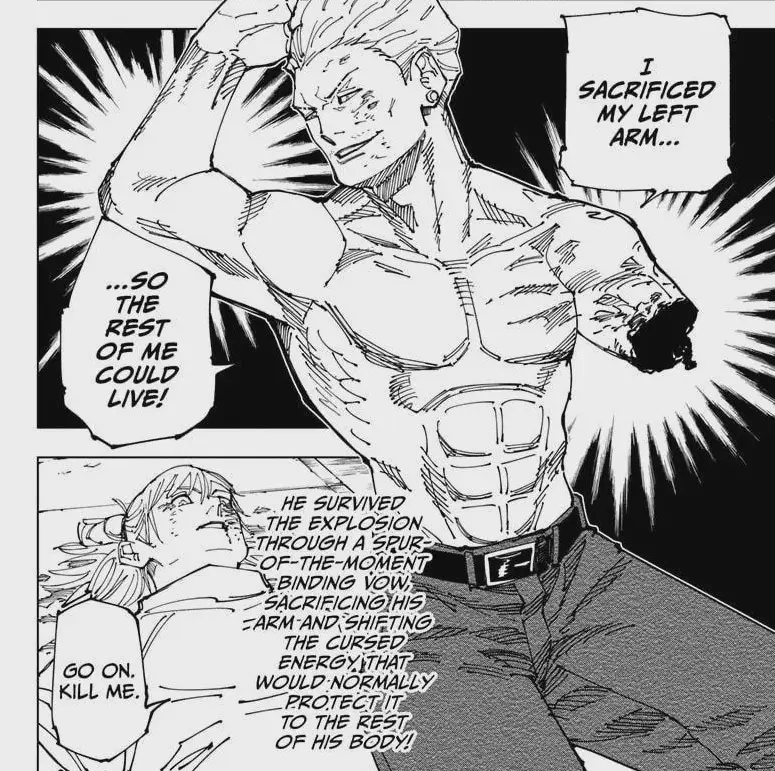
Saved Hakari’s life
Lost his arm
Kinji Hakari made an improvised binding vow during his fight against Hajime Kashimo. When he was about to be caught in an explosion in the water created by Kashimo, Hakari sacrificed his arm, shifting the cursed energy from his arm to protect the rest of his body. This vow saved Hakari’s life.
Mechamaru’s vow with Mahito and Kenjaku
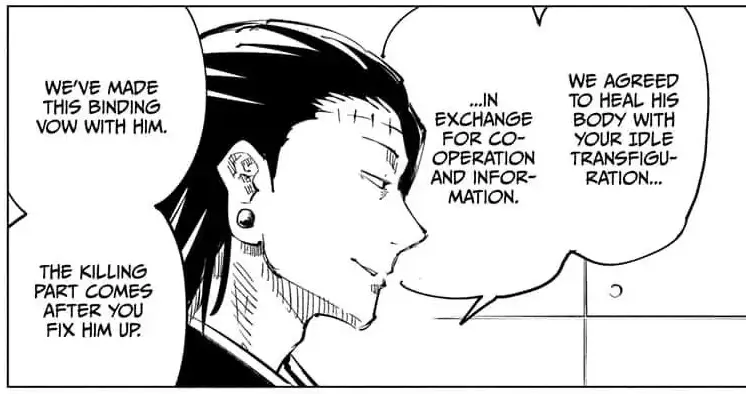
Healed Mechamaru and gained useful information
Agreed not to harm Jujutsu High
In chapter 79, we see a different kind of vow involving three parties: Mahito, Kenjaku, and Mechamaru. Mahito would heal Mechamaru using his Idle Transfiguration. In return, Kenjaku and Mahito agreed not to harm anyone from Jujutsu High. In exchange, Mechamaru would give them help and useful information.
Finally, Binding Vows are one of the most important aspects of the Jujutsu Kaisen power system. Although they generate some controversy regarding the price paid, especially in the numerous times Sukuna used them, they add an interesting dynamic to the series’ power system and are crucial for the outcome of some fights.

